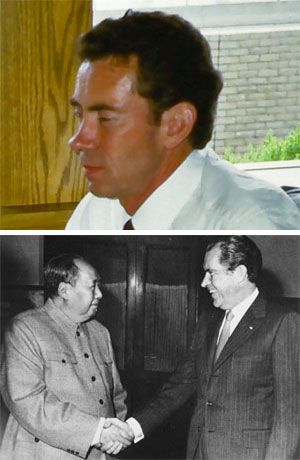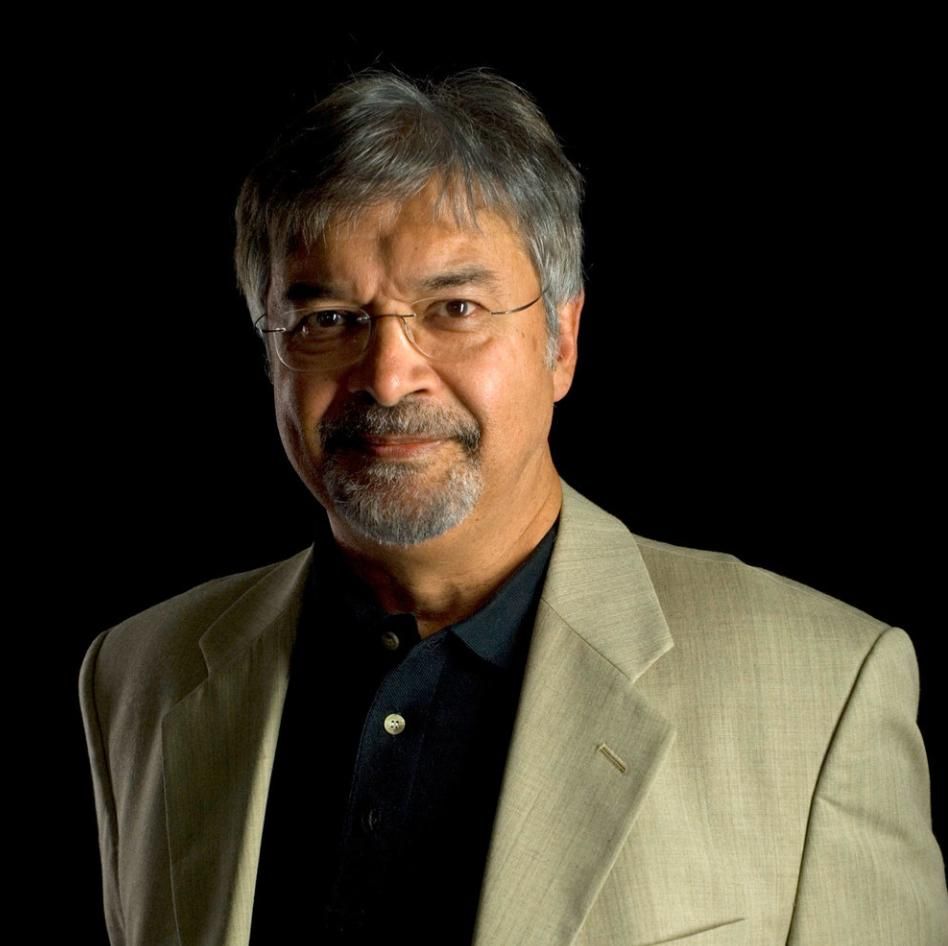The Chess Handshake Challenge
How far away are you from the World Champion, in terms of handshakes? Have you shaken hands with someone who has shaken hands with him? How far from Boris Spassky? Capablanca? Morphy? Carlsen? Anand? Here's this week's challenge: try to find the shortest handshake chain from you to the most famous chess players and world champions you can think of. The handshake chain is a very interesting game. Check out the article to find out how the co-founder of ChessBase, Frederic Friedel played the game and how you can play it too.
Please bear with me. After a somewhat lengthy introduction I will come to the point of this article, which I hope you will find interesting.
In my previous life – no wait, it was more like a few decades ago – I was a rookie journalist, producing science documentaries for national German TV. It was a lot of fun. We did many interesting pieces, met many interesting people. The head of the department was the very famous science anchor, Hoimar von Ditfurt, who was not just quickwitted and inteligent, but also blessed with a fair deal of humour. I got on extremely well with him, and we had a number of adventures together (like this fight against astrologers)
Another good friend at the time was Wolfgang Runkel, an editorial journalist who wrote for the very prestigious weekly magazine Die Zeit. He was the one who pointed me to the fact that computers were beginning to play chess. When I told Hoimar about this he commissioned me to make a documentary, and that was my entry into the world of computer chess.
With both Hoimar and Wolfgang I played a game we called the "handshake chain." This was almost two decades before the advent of actor Kevin Bacon's "Six degrees game," which was based on a similar concept. The point was to find how many handshakes away you are from any given person. For example I was two handshakes away from the President of Germany, because I had shaken hands with someone who had shaken hands with someone who had shaken hands with the President (I use this past tense, not "had shook"). Wolfgang was one handshake away, Hoimar was zero, since he regularly fraternized with the President. In our method of counting shaking hands with someone meant your handshake distance was zero.
My contest with Wolfgang was fairly close, although he was usually the winner. Against Hoimar I did not have the ghost of a chance. He was part of German aristocracy, a well-respected Professor, son of a famous historian. He had met and broken bread with everyone of name and fame. Typically I was four handshakes away from some famous personality (e.g. Albert Einstein), while Hoimar would be just one.

That changed to some extent in 1979, when I was assigned to do a research project for GEO magazine and German TV, on the budding field of "Artificial Intelligence" (yes, at the time we still put it into inverted commas). For this I took a trip around the world – Hamburg, New York, California, Japan, India – visiting all the important Artificial Intelligence labs (and a couple of pathetically fake companies). On this trip I got to meet a number of famous people, or persons close to them.
When I got back I could challenge Hoimar: "Mao Zedong" I said to him. My score was two, since I had met Richard Nixon's brother on the trip, and Nixon had shaken hands with Mao. Naturally Hoimar, after an hour of mulling over it, came up with a one-handshake score. I could only beat him, occasionally, on US politicians (like Dwight D. Eisenhower) due to the fateful encounter with Edward Nixon. But usually, sometimes the next day, Hoimar would think of something that shortened his chain, and he drew parallel or beat me.
The Chess Handshake Chain
So now we come to the reason I am telling you all this: I want to propose a Chess Handshake Competition. How many handshakes are you away from famous players? We will assume that when two players have faced each other in a game they will have shaken hands. Say you played in a simul against Korchnoi (and conceded defeat with a handshake). Then your handshake score for Spassky, Karpov, Kasparov, and many others is one.
What is the best way to work out chains? Think of some good player you have met, and then search for his games in Mega Database. If you do not have these – yes, Virginia, there still are some who do not – you can also search in the ChessBase Account, which also has a lot of other entertaining services. You can make yourself a 3-month trial account to start things off. The quickest method for searching for the opponents of a player you have personally met is by using the page players.chessbase.com, which is a very neat service in itself.
Personally, I have met a lot of strong players: Kasparov, Karpov, Korchnoi, Spassky, Euwe (whom I drove from a tournament he was visiting in Hamburg to his hotel), Botvinnik and Reshevsky (very important!). So it is tough for anyone to beat me. Here are some examples:
• Emanuel Lasker: my handshake score is one (Reshevsky played Lasker in 1920)
• Rubinstein, Janovsky, Drake, Fine, Capablanca, Aljechin, and many others: one, me-Rechevsky-them. Meeting Samuel was incredibly important!
• Alan Turing: one. I met Donald Michie, who worked with Turing.
How about Steinitz? Morphy? I have got the latter down to four and still hoping for a three (or even two). The Duke of Brunswick (= Morphy + 1)? Ruy Lopez? François-André Danican Philidor? Working on them all – maybe you can help?
A small humorous interlude: I was recently discussing the chess handshake chain with a 14-year-old grandmaster. He was very impressed by my score of one to Capablanca. "I wonder what my score is," he said. "Seven? Ten?" – "Probably," I replied, "Such a pity you have never met me!" – "Tell me, Frederic," he exclaimed, "how is it possible for someone to be so dumb as me?"
Try and find the shortest handshake chains between yourself and famous chess players. Post your results in our comments section below. And have fun searching!
About the Author

Editor-in-Chief emeritus of the ChessBase News page. Studied Philosophy and Linguistics at the University of Hamburg and Oxford, graduating with a thesis on speech act theory and moral language. He started a university career but switched to science journalism, producing documentaries for German TV. In 1986 he co-founded ChessBase.








